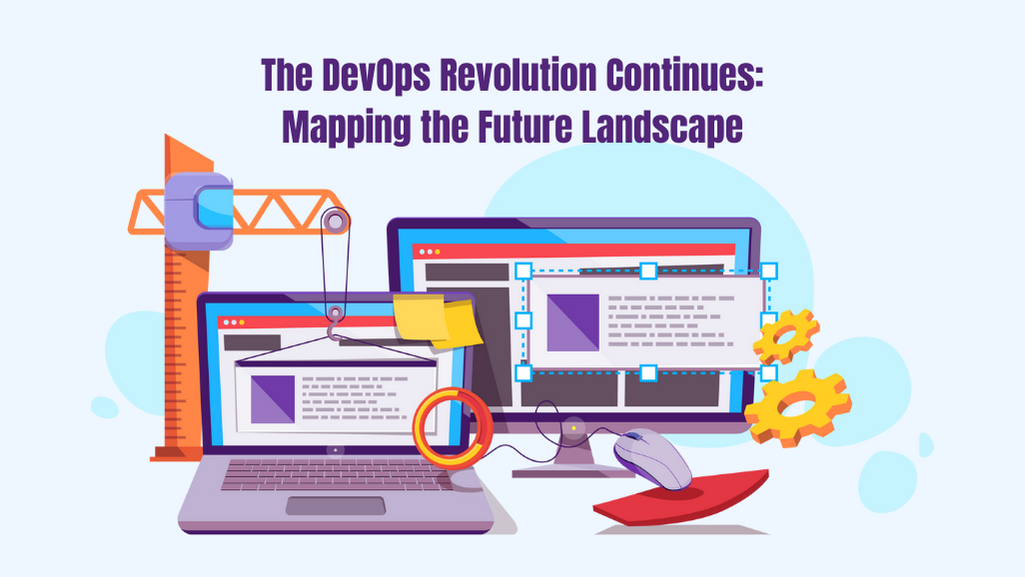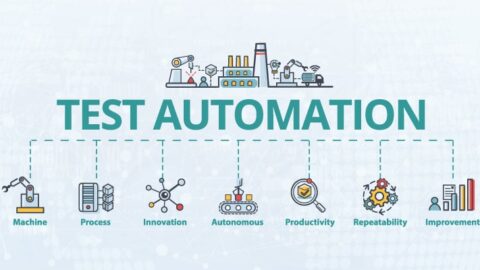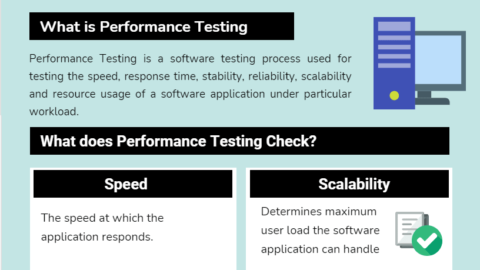The DevOps Revolution Continues: Mapping the Future Landscape
Lately there have been a lot of questions about DevOps and DevOps Azure. In the fast-paced world of technology, trends, and methodologies come and go. One such trend that has gained significant traction in recent years is DevOps, a combination of software development (Dev) and IT operations (Ops). It has revolutionized the way organizations develop, deploy, and maintain software systems while focusing on collaboration, automation, and continuous delivery.
Table of Contents
In today’s fast-paced and technology-driven world, businesses are constantly seeking ways to improve efficiency, productivity, and collaboration. One approach that has gained significant traction is DevOps, a methodology that bridges the gap between software development and operations. The DevOps revolution has already transformed numerous industries and continues to shape the future landscape of software development and deployment. In this article, we will delve into the intricacies of DevOps, explore its current state, and map out its future trajectory. Also, Azure, Microsoft’s cloud computing platform, offers a comprehensive suite of services that enable organizations to implement DevOps methodologies seamlessly. In this article, we will explore the world of DevOps Azure and its significance in transforming the cloud landscape.
However, you might have heard rumors suggesting that DevOps is on its deathbed. Is there any truth to these claims, or is DevOps simply evolving to meet the changing needs of organizations? Let’s delve into this topic and look at the future of DevOps.
The Current State of DevOps
DevOps Principles and Practices
To fully comprehend the future of DevOps, we must first examine its current state and the principles and practices that define it. At its core, DevOps emphasizes continuous integration, continuous delivery, and continuous deployment. By automating processes, leveraging infrastructure as code, and utilizing robust monitoring and feedback loops, organizations can achieve faster time to market and improved software quality.
Tools and Technologies
Numerous tools and technologies have emerged to support DevOps practices. These include configuration management tools like Ansible and Chef, containerization platforms like Docker and Kubernetes, and continuous integration/continuous deployment (CI/CD) pipelines like Jenkins and GitLab. These tools empower development and operations teams to collaborate seamlessly, automate tasks, and ensure the smooth delivery of software.
Benefits of DevOps Adoption
The increasing adoption of DevOps can be attributed to its manifold benefits. Organizations that embrace DevOps practices experience improved collaboration, faster innovation cycles, enhanced software quality, and reduced time to market. DevOps also fosters a culture of learning and experimentation, driving continuous improvement and enabling teams to deliver value to customers more efficiently.
The Benefits of DevOps
Enhanced Collaboration and Communication
DevOps breaks down silos and promotes cross-functional teams, where developers, operations personnel, and other stakeholders work closely together. This collaborative environment facilitates rapid feedback, encourages the exchange of ideas, and enables swift decision-making. As a result, organizations witness improved productivity, reduced errors, and enhanced overall project outcomes.
Continuous Integration and Delivery
Automation lies at the core of DevOps practices. By automating processes such as code integration, testing, and deployment, organizations can achieve faster and more reliable software releases. Continuous Integration (CI) and Continuous Delivery (CD) practices minimize manual errors, ensure greater stability, and enable organizations to respond promptly to changing market demands.
Agile Development and Flexibility
DevOps embraces agile principles, enabling organizations to adapt and respond to evolving customer needs efficiently. By breaking down projects into smaller, manageable tasks and adopting iterative development cycles, DevOps empowers teams to deliver incremental value to customers. This iterative approach allows for flexibility, rapid prototyping, and faster time-to-market, giving businesses a competitive edge in the digital landscape.
Enhanced Reliability and Stability
Through rigorous testing, monitoring, and automation, DevOps ensures that software deployments are reliable and stable. Continuous monitoring allows for proactive identification and resolution of issues, minimizing system downtime and maximizing customer satisfaction. By implementing robust quality assurance practices and embracing a culture of accountability, organizations can maintain high reliability and stability standards.
Scalability and Cost-Efficiency
In today’s fast-paced digital world, scalability is a key factor for success. DevOps promotes the use of cloud infrastructure, allowing organizations to scale their applications and services seamlessly. By leveraging cloud technologies, businesses can optimize resource allocation, reduce infrastructure costs, and respond quickly to fluctuations in demand.
The Rise of DevOps Azure
DevOps Azure, the integration of DevOps principles with Microsoft Azure, has gained immense popularity due to its ability to streamline software development and deployment processes. With DevOps Azure, organizations can leverage the power of Azure’s scalable infrastructure and services to accelerate application delivery, improve collaboration, and enhance overall operational efficiency.
Understanding DevOps Azure
DevOps Azure combines the best practices of DevOps with the extensive capabilities of Microsoft Azure. It provides a seamless environment for teams to collaborate, automate, and deliver applications with increased speed and agility. By leveraging Azure’s cloud services, organizations can benefit from features such as continuous integration, continuous delivery, infrastructure as code, and automated testing.
Benefits of DevOps Azure
DevOps Azure offers numerous benefits to organizations looking to enhance their software development and deployment processes:
- Accelerated Application Delivery: DevOps Azure enables faster release cycles, allowing organizations to deliver new features and updates to their applications more frequently, reducing time-to-market significantly.
- Improved Collaboration: With DevOps Azure, development and operations teams can collaborate closely throughout the entire software development lifecycle. This alignment fosters better communication, knowledge sharing, and mutual understanding, resulting in improved efficiency and productivity.
- Enhanced Scalability: Azure’s scalable infrastructure empowers organizations to scale their applications seamlessly based on demand. DevOps Azure ensures that the infrastructure provisioning and scaling processes are automated, allowing businesses to handle fluctuating workloads effortlessly.
- Increased Reliability: DevOps Azure encourages the use of automated testing, continuous integration, and continuous delivery practices. These ensure that software updates and deployments are thoroughly tested, minimizing the risk of errors and enhancing overall application reliability.
- Cost Optimization: By leveraging Azure’s pay-as-you-go model and automated infrastructure provisioning, organizations can optimize their cloud spending. DevOps Azure helps in efficiently managing resources, eliminating unnecessary costs, and improving overall cost-effectiveness.

software development -DevOps revolution-
The DevOps Revolution Continues: Mapping the Future Landscape
As the DevOps revolution continues to gain momentum, it is essential to explore the future landscape and the potential directions this transformative methodology might take. Let’s take a closer look at what lies ahead.
1. AI and Machine Learning in DevOps
Artificial Intelligence (AI) and Machine Learning (ML) are poised to revolutionize the DevOps landscape. These technologies have the potential to automate complex tasks, optimize software testing, and predict potential issues before they occur. By leveraging AI and ML, organizations can enhance their ability to monitor and manage applications, improve efficiency, and drive innovation.
2. Security and Compliance in DevOps
With the increasing emphasis on cybersecurity and data privacy, integrating security and compliance into the DevOps workflow is crucial. DevSecOps, an evolution of DevOps, focuses on integrating security practices throughout the software development lifecycle. Future DevOps practices will prioritize secure coding, automated vulnerability scanning, and robust security testing to ensure the protection of sensitive data and systems.
3. Serverless Architecture and DevOps
Serverless architecture, which abstracts server management away from developers, is gaining popularity and will significantly impact the future of DevOps. With serverless, developers can focus on writing code without worrying about infrastructure management. The seamless integration of serverless architecture into DevOps practices will enable organizations to build and deploy scalable and highly available applications more efficiently.
4. Site Reliability Engineering (SRE)
Site Reliability Engineering (SRE) is an emerging discipline that combines software engineering and operations to ensure reliable and scalable systems. SRE practices align closely with DevOps principles and focus on automating operations, monitoring, and incident response. As organizations strive for increased reliability and system stability, SRE will play a pivotal role in the future of DevOps.
5. Cloud-Native DevOps
The migration to cloud computing has been instrumental in driving DevOps adoption. In the future, cloud-native DevOps practices will continue to evolve, leveraging the full potential of cloud platforms like Amazon Web Services (AWS), Microsoft Azure, and Google Cloud. Cloud-native DevOps enables organizations to build and deploy applications that are scalable, resilient, and highly available, driving business agility and cost optimization.
Debunking the Death Rumors
Despite the whispers about the demise of DevOps, it’s important to recognize that DevOps is not dead. Rather, it is simply maturing. The principles and practices it introduced are still highly relevant in today’s digital landscape. For example, collaboration between development and operations teams, automation of processes, and a focus on continuous delivery are all vital for organizations aiming to stay competitive. While the term “DevOps” may fade away, its core principles will persist.
The Evolution of DevOps
DevOps is evolving to cater to the growing complexities and challenges faced by modern businesses. One notable trend is the rise of platform engineers. These professionals bridge the gap between development and operations by providing a specialized layer of expertise. They enable the scalability, security, and efficiency required for deploying applications across various platforms, including the cloud. Embracing the concept of platform engineering can help organizations streamline their development and operations workflows.
Embracing Containerization with Docker
Containerization has played a significant role in the DevOps ecosystem, and Docker has emerged as a leading technology in this domain. Docker allows developers to package their applications and their dependencies into lightweight, portable containers. This approach eliminates the problem of working on one machine but not another and ensures consistent deployment across different environments. When making the choice to deploy Docker, businesses can achieve faster deployment, efficient resource utilization, and easier scalability. To leverage Docker effectively, organizations should prioritize the following actionable tips:
- Invest in Docker education for your teams: Encourage your teams to learn about Docker and its best practices. Provide training resources, online courses, or workshops to help them gain expertise in containerization.
- Integrate Docker into your CI/CD pipeline: Incorporate Docker into your continuous integration and continuous deployment processes. This integration will enable seamless building, testing, and deployment of containerized applications.
- Leverage container orchestration platforms: Explore container orchestration platforms like Kubernetes or Docker Swarm to manage and scale your containerized applications efficiently. These platforms provide features such as automated scaling, service discovery, and high availability.
Keeping Up With DevOps Trends
To stay ahead in the ever-evolving DevOps landscape, it is essential for business owners and decision-makers to remain informed about emerging trends. Regularly reading industry publications, attending conferences, and networking with industry experts can provide valuable insights and first-hand experience with the latest tools, practices, and techniques.
In the rapidly evolving landscape of DevOps, staying abreast of the latest trends is vital to remain competitive and deliver value to customers. Here are some effective strategies to help you keep up with DevOps trends:
-
Engage in Continuous Learning
To begin with, engaging in continuous learning is key to staying ahead of the curve. Firstly, attend industry conferences, participate in webinars, join online communities, and explore relevant blogs and podcasts to expand your knowledge and gain insights from industry experts.
-
Embrace Open Source Culture
Secondly, embracing the open-source culture is crucial as the open-source community plays a pivotal role in shaping the DevOps landscape. Hence, actively contribute to projects, leverage open-source tools and frameworks, and collaborate with like-minded professionals. Engaging with the open-source community exposes you to innovative ideas and helps you stay informed about the latest developments.
-
Foster a Culture of Experimentation
Furthermore, fostering a culture of experimentation within your organization is important. This involves providing teams with the freedom to explore new technologies and methodologies. Encourage them to share their learnings and insights, fostering a culture of continuous improvement and adaptation.
-
Follow Thought Leaders and Influencers
In addition, it is crucial to identify and follow influential thought leaders and industry influencers in the DevOps space. Consequently, monitor their blogs, social media accounts, and publications to gain valuable insights into emerging trends, best practices, and case studies. Their expertise and experience can provide invaluable guidance in navigating the ever-evolving DevOps landscape.
-
Participate in Collaborative Platforms
Lastly, engaging in collaborative platforms such as GitHub, GitLab, and Bitbucket can be highly beneficial. Therefore, connect with professionals from diverse backgrounds and share knowledge. Actively participate in discussions, contribute to open-source projects, and seek feedback from peers. Collaborative platforms offer an excellent opportunity to expand your network and stay updated on the latest trends.
The Evolving Face of DevOps
The DevOps revolution has disrupted traditional software development and operations paradigms, providing organizations with a powerful framework for operational excellence. Additionally, DevOps empowers businesses to deliver high-quality products and services efficiently and reliably by fostering collaboration, automation, and agility. As the digital landscape continues to evolve, embracing the DevOps mindset is crucial for organizations seeking to stay competitive and achieve sustainable growth.
Moreover, the DevOps revolution is not merely a trend but a fundamental shift that has become the backbone of successful digital transformations. Therefore, it is essential to embrace DevOps and unlock your organization’s true potential in the rapidly evolving digital era.

Magdalena Polka is a Business Solution Designer and an Information Technology / Project Management consultant and author with over 15 years of software development, management and project management experience.










